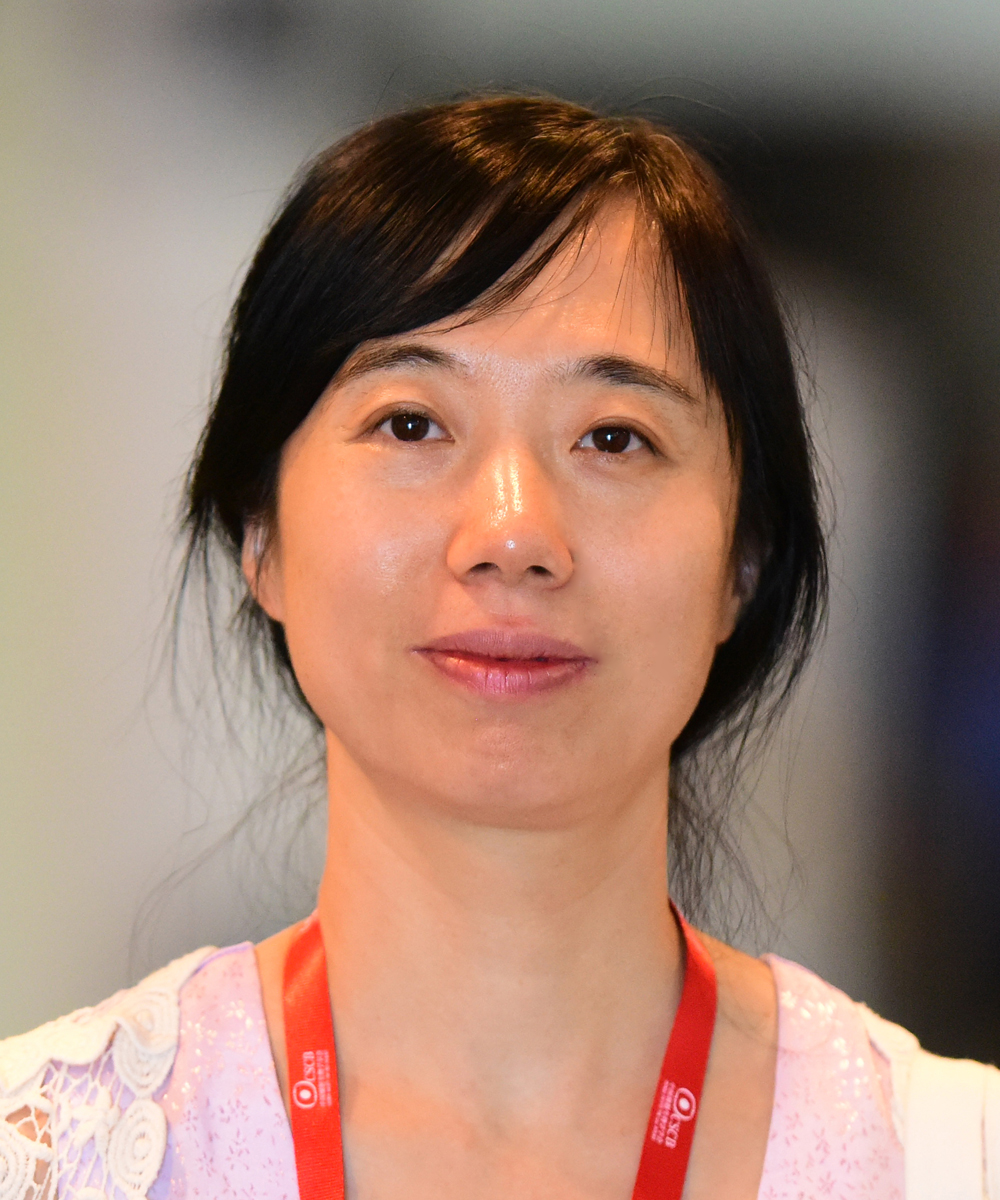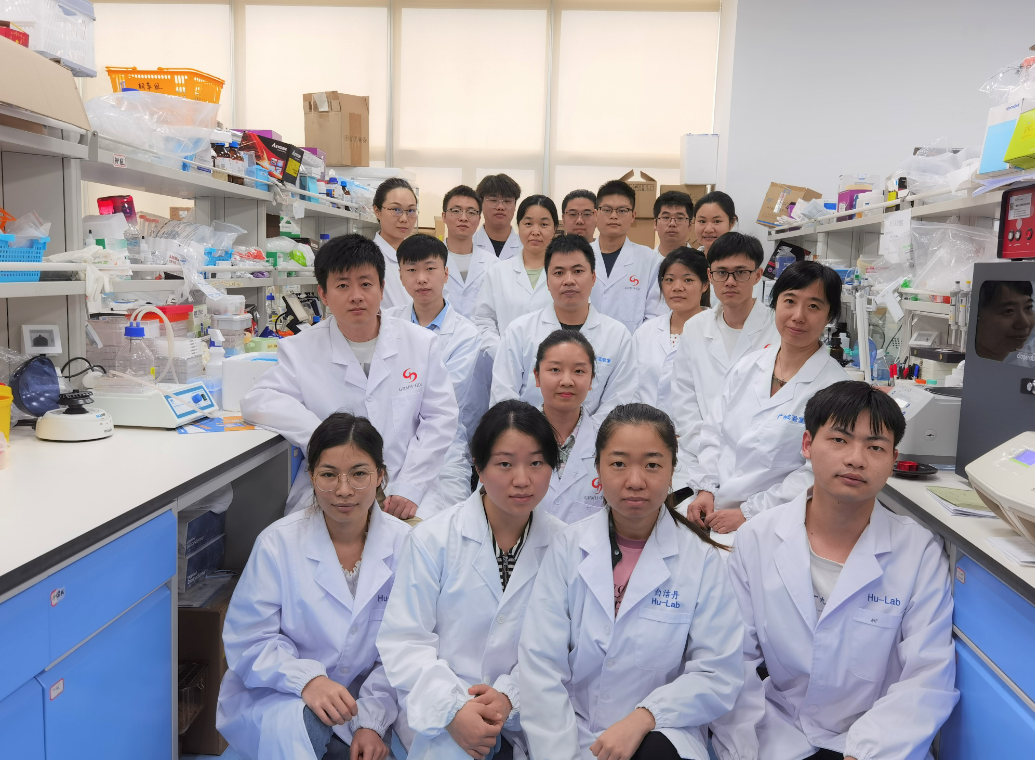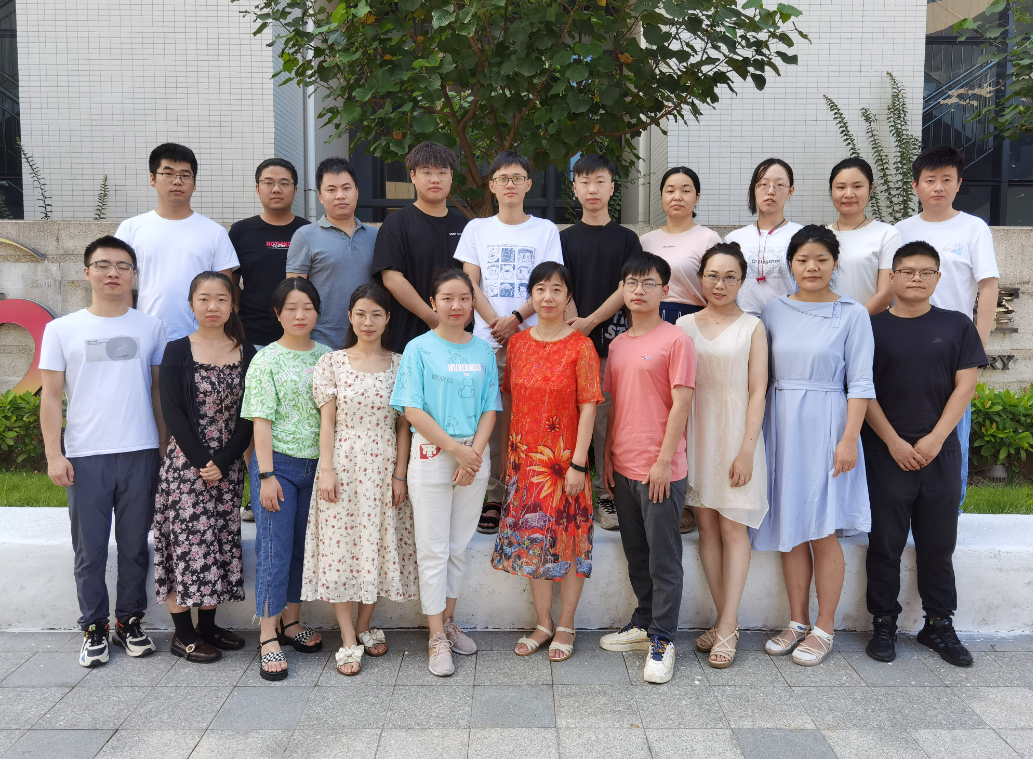胡苹
广州实验室研究员,博士生导师
E-mail:hu_ping@gzlab.ac.cn
个人简介
胡苹研究员毕业于北京大学生命科学院,获得学士学位。在美国纽约州立大学石溪分校与美国冷泉港实验室合作研究生项目获得博士学位。在美国加州大学伯克利分校/霍华德•休斯医学研究所从事博士后研究。2011年-2021年在中国科学院生物化学与细胞生物学研究所担任研究研究员、博士生导师、研究组长。现任广州国家实验室研究员、博士生导师、研究组长。承担国家自然科学基金、科技部重点研发计划、中国科学院战略先导专项等国家、省部级项目,获得上海市“五一劳动奖章”,现任国际干细胞学会(ISSCR)教育委员会委员、中国细胞生物学学会染色质与表观遗传分会委员、中国细胞生物学学会细胞治疗分会委员、广东省精准医学学会干细胞及再生医学分会副主任委员等。
研究方向
成体干细胞与组织再生、衰老
研究工作
成体干细胞对出生后机体再生和稳态维持发挥重要的调控作用,胡苹研究组主要以肌肉干细胞、成纤维细胞前体细胞和脂肪干细胞为例,探索组织损伤、再生过程中成体干细胞微环境的演变规律,阐明微环境与成体干细胞之间的相互作用,特别是免疫微环境与再生之间的关系。揭示在组织稳态维持与衰老过程中微环境的变化,及其对成体干细胞命运决定的调控作用。鉴定在组织再生过程中成体干细胞的内源性表观遗传改变与微环境变化相互呼应,促进再生,维持组织稳态的分子机制。阐明在衰老过程中细胞内源表观遗传机制的变化规律,探索延缓与逆转衰老的再生医学技术。探索在体外模拟体内微环境,制备高活性、高纯度临床级成体干细胞的方法,建立应用成体干细胞治疗多种退行性疾病的治疗方法,建立干细胞生产、质控体系。
代表论著
1. Asymmetrical Inactivation of ESR1 Signaling in
Muscle Progenitor Cells Causes and its Reactivation Alleviates Progression of Adolescent Idiopathies Scoliosis.
Xiexiang Shao#, Xin Fu#, Wenyuan Sui, Wenjun Yang, Xingzuan Lin, Zifang Huang, Sheng Li, Minzhi Jia, Huan Liu,
Wei Liu, Lili Han, Yang Yu, Yaolong Deng, Tianyuan Zhang, Jingfan Yang, and Junlin Yang*, and
Ping Hu*. Cell Discovery, 2023, Jan. 30.
2. Chemical reprogramming of melanocytes to skeletal muscle cells. Wenjun
Yang, Yaqi Wang, Yuanyuan Du, Jiyong Li, Sheng Li, Cheng Li,
Hongkui Deng, and Ping Hu*. Journal of Cachexia, Sarcopenia and Muscle. 2023, Jan.
3. Msi2 mediated MiR7a-1 processing repression
promotes myogenesis. Wenjun Yang, Lele Yang, Jianhua Wang, Lili Han, Sheng Li, Qi Yin,Ruimiao Ma, Jinsong Li,
Jingyi Hui*, and Ping Hu*. Journal of Cachexia,
Sarcopenia and Muscle. 2022 Feb;13(1):728-742.
4. Muscle regeneration controlled by a designated DNA
dioxygenase. Hongye Wang, Yile Huang, Ming Yu, Yang Yu, Sheng Li, Huating Wang, Hao Sun, Bing Li, and Guo-Liang
Xu, and Ping Hu*. Cell Death and Disease,
April 25, 1;12(6):535-549, 2021.
5. Myofiber necroptosis promotes muscle stem cell proliferation via releasing Tenascin-C
during regeneration. Shen’ao Zhou, Wei Zhang, Caixia Wei, Sheng Li, Yu Yang, Jie Qin, Dan Liu, Hongye Wang, Wenjun
Yang, Gaihong Cai, She Chen, Yingzhe Ding, Huating Wang, Xiexiang Shao, Jianhua Wang, Ping Hu, and
Liming Sun. Cell Research, 2020 Dec;30(12):1063-1077. (Featured cover story)
6. Dosage effect of multiple genes accounts for multisystem disorder of myotonic
dystrophy type 1. Qi Yin, Hongye Wang, Na Li, Yifu Ding, Zhenfei Xie, Lifang Jin, Yan Li,1 Qiong Wang, Xinyi Liu,
Liuqing Xu, Yanbo Cheng, Kai Wang, Cuiqing Zhong, Qian Yu, Wei Tang, Wanjin Chen,
, Fan Zhang, Chen Ding,
Lan Bao,1 Bin Zhou, Ping Hu,* and Jinsong Li* Cell Research, 2020
Feb;30(2):133-145.(Featured cover story)
7. Dual function of VGLL4 in muscle regeneration. Xue Feng, Zuoyun Wang, Fei Wang,
Tiantian Lu, Jinjin Xu, Xueyan Ma, Jinhui Li, Lingli He, Wenxiang Zhang, Sheng Li, Wenjun Yang, Shu Zhang, Gaoxiang
Ge, Yun Zhao, Ping Hu, Lei Zhang. EMBO J, 2019, 38: e101051.
8. Dkk3 dependent transcriptional regulation controls ageing induced skeletal muscle
atrophy. Jie Yin, Lele Yang, Yangli Xie, Yan Liu, Sheng Li, Wenjun Yang, Bo Xu, Hongbin Ji, Kun Wang, Gang Li, Lin
Chen & Ping Hu*. Nature Communications. May. 1, 9(1):1752. 2018.
9. Combination of inflammation-related cytokines promotes long-term muscle stem cell
expansion. Xin Fu, Jun Xiao, Yuning Wei, Sheng Li, Yan Liu, Kun Sun, Hao Sun, Huating Wang, Zongkang Max Zhang,
Baoting Zhang, Chun Sheng, Hongyan Wang*, and Ping Hu*. Cell Research. 2015. Jun;25(6):655-73.
(Featured cover story)
10. Co-dependent Activators Direct Myoblast Specific
MyoD Transcription. Ping Hu, Kenneth G. Geles, Ji-Hye
Paik, Ronald A. DePinho, and Robert Tjian. Developmental Cell, 2008, Oct; 15(4): 534-546.
实验室成员
Ping Hu, Ph.
D.
Professor of Guangzhou Laboratory, Doctoral supervisor
E-mail:hu_ping@gzlab.ac.cn
Education and working
experiences
Dr. Ping Hu graduated from the Collage of Life Sciences, Peking University. She obtained
her Ph. D. degree from the joint graduate program of State University of New York, Stony Brook and Cold Spring
Harbor Laboratory. Dr. Hu performed her post-doctoral research in University of California, Berkey/Howard Hughes
Medical Institute. She worked as a principal investigator and professor in Institute of Biochemistry and Cell
Biology, Chinese Academy of Sciences from 2011 to 2021. Since 2021, Dr. Hu is a principal investigator and professor
in Guangzhou Laboratory. Dr. Hu is the member of Education Committee, International Society of Stem Cell Research
(ISSCR), Committee member of Chinese Society of Cell Biology, Cell therapy division. She also serves as editor for
Scientific Reports, Frontier of Developmental Biology.
Research
Interests
Dr. Hu’s group is focused on the study of adult stem cells and their roles in tissue
regeneration, homeostasis maintenance, and aging using skeletal muscle, epithelia tissues, and adipose as model
systems. Dr. Hu’s group has identified several new microenvironment components, especially inflammation and ECM
during regeneration to regulate the activity of adult stem cells. They have revealed the cell communications between
immune cells, mesenchymal cells, and stem cells. Dr. Hu’s group also revealed the functions stem cells and
circulating factors in aging. Further epigenetic circuits regulating stem cell fate determination and aging have
been identified. Dr. Hu’s group is interested in identifying new types of adult stem cells and further uncover the
epigenetic mechanism governing adult stem cell fate determination and aging. They are also exploring new
regenerative medicine techniques to slow down and reverse aging and treat degenerative disease. Great efforts have
been invested to establish the system for mass production of clinical grade stem cells and their quality controls
for clinical applications.
Publications
1. Asymmetrical Inactivation of ESR1 Signaling in
Muscle Progenitor Cells Causes and its Reactivation Alleviates Progression of Adolescent Idiopathies Scoliosis.
Xiexiang Shao#, Xin Fu#, Wenyuan Sui, Wenjun Yang, Xingzuan Lin, Zifang Huang, Sheng Li, Minzhi Jia, Huan Liu,
Wei Liu, Lili Han, Yang Yu, Yaolong Deng, Tianyuan Zhang, Jingfan Yang, and Junlin Yang*, and
Ping Hu*. Cell Discovery, 2023, Jan. 30.
2. Chemical reprogramming of melanocytes to skeletal muscle cells. Wenjun
Yang, Yaqi Wang, Yuanyuan Du, Jiyong Li, Sheng Li, Cheng Li,
Hongkui Deng, and Ping Hu*. Journal of Cachexia, Sarcopenia and Muscle. 2023, Jan.
3. Msi2 mediated MiR7a-1 processing repression
promotes myogenesis. Wenjun Yang, Lele Yang, Jianhua Wang, Lili Han, Sheng Li, Qi Yin,Ruimiao Ma, Jinsong Li,
Jingyi Hui*, and Ping Hu*. Journal of Cachexia,
Sarcopenia and Muscle. 2022 Feb;13(1):728-742.
4. Muscle regeneration controlled by a designated DNA
dioxygenase. Hongye Wang, Yile Huang, Ming Yu, Yang Yu, Sheng Li, Huating Wang, Hao Sun, Bing Li, and Guo-Liang
Xu, and Ping Hu*. Cell Death and Disease,
April 25, 1;12(6):535-549, 2021.
5. Myofiber necroptosis promotes muscle stem cell proliferation via releasing Tenascin-C
during regeneration. Shen’ao Zhou, Wei Zhang, Caixia Wei, Sheng Li, Yu Yang, Jie Qin, Dan Liu, Hongye Wang, Wenjun
Yang, Gaihong Cai, She Chen, Yingzhe Ding, Huating Wang, Xiexiang Shao, Jianhua Wang, Ping Hu, and
Liming Sun. Cell Research, 2020 Dec;30(12):1063-1077. (Featured cover story)
6. Dosage effect of multiple genes accounts for multisystem disorder of myotonic
dystrophy type 1. Qi Yin, Hongye Wang, Na Li, Yifu Ding, Zhenfei Xie, Lifang Jin, Yan Li,1 Qiong Wang, Xinyi Liu,
Liuqing Xu, Yanbo Cheng, Kai Wang, Cuiqing Zhong, Qian Yu, Wei Tang, Wanjin Chen, Wenjun Yang, Fan Zhang, Chen Ding,
Lan Bao,1 Bin Zhou, Ping Hu* and Jinsong Li* Cell Research, 2020
Feb;30(2):133-145.(Featured cover story)
7. Dual function of VGLL4 in muscle regeneration. Xue Feng, Zuoyun Wang, Fei Wang,
Tiantian Lu, Jinjin Xu, Xueyan Ma, Jinhui Li, Lingli He, Wenxiang Zhang, Sheng Li, Wenjun Yang, Shu Zhang, Gaoxiang
Ge, Yun Zhao, Ping Hu, Lei Zhang. EMBO J, 2019, 38: e101051.
8. Dkk3 dependent transcriptional regulation controls ageing induced skeletal muscle
atrophy. Jie Yin, Lele Yang, Yangli Xie, Yan Liu, Sheng Li, Wenjun Yang, Bo Xu, Hongbin Ji, Kun Wang, Gang Li, Lin
Chen & Ping Hu*. Nature Communications. May. 1, 9(1):1752. 2018.
9. Combination of inflammation-related cytokines promotes long-term muscle stem cell
expansion. Xin Fu, Jun Xiao, Yuning Wei, Sheng Li, Yan Liu, Kun Sun, Hao Sun, Huating Wang, Zongkang Max Zhang,
Baoting Zhang, Chun Sheng, Hongyan Wang*, and Ping Hu*. Cell Research. 2015. Jun;25(6):655-73.
(Featured cover story)
10. Co-dependent Activators Direct Myoblast Specific
MyoD Transcription. Ping Hu, Kenneth G. Geles, Ji-Hye
Paik, Ronald A. DePinho, and Robert Tjian. Developmental Cell, 2008, Oct; 15(4): 534-546.
Lab
members


